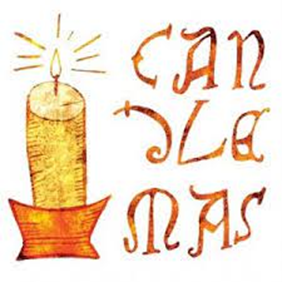
Services
This morning’s readings explore the power of forgiveness. In Genesis 45:3-11, 15, Joseph’s brothers “could not answer him, so dismayed were they at his presence,”). They are filled with shame, as well they might be, having beaten him, left him for dead and allowed him to be trafficked into slavery. Yet Joseph shows only mercy and kindness, begging them not to feel bad, promising them land and livelihoods, “for it was not you who sent me here, but God.”
Joseph, however can afford to be forgiving because it has all turned out well for him. But what of those enslaved under Roman occupation, whose oppressors show no remorse and to whom Jesus preaches the power of love and forgiveness in Luke 6:27-38?
Jesus is right that it is costly to love your enemy and yet he presents this not an act of submission or weakness but a sign of strength. He offers it as a way of rejecting and subverting the power of the mighty; a way of demonstrating to those with power a different way to live.
Under Roman law, a master was permitted to strike his slave on one cheek but not on both. By asking his listeners to offer the other cheek Jesus is recommending a kind of civil disobedience which challenges the right of the master. It was lawful for a Roman citizen to force a non-citizen to carry his belongings for a mile, but no more, walking the extra mile, as Jesus urged, would compel the Roman to break his own law. In effect, Christ is saying that when our opponents go low, we need to go high. Forgiveness is not a call to put up with bad behaviour, it is a call to model a different, better way of living.
Life isn’t fair. But is God fair? Jeremiah thinks so, he tells us, in Jeremiah 17:510, “I the Lord test the mind and search the heart, to give to all according to their ways, according to the fruit of their doings.” This belief underlies a persistent idea that people get what they deserve: that those who are healthy and prosperous must be doing something right and those who are not must be at fault in some way.
Jesus refutes this idea, in Luke 6:17-26, when he refers to the poor, the hungry and the despised as “blessed” and those who rich, full and joyful as “woeful”. In the beatitudes Jesus separates success from virtue. The poor are no longer blamed or shamed for their predicament. More than this, for Jesus, blessing is something transformational: the hungry will be blessed “for they will be filled” and those who weep “for they will laugh”. When God first chose a people to bless it was in order that they might be a blessing.
At times, we are the ones who are empty and grieving and in need of blessing and sometimes we are the ones who have blessings to share. Whatever our situation, we are to understand that no blessing is earned; that all blessings are a gift from God; and we are only blessed in order to be a blessing to others.
The start of Jesus’ ministry in John’s gospel begins with an excess of wine and in Luke 5:1-11, with an excess of fish. The characters in both stories begin with a fear of scarcity and move to a place of abundance. What causes them to move, to act on Jesus’ words, when all he has done is talk?: “we have worked all night and caught nothing,” says Simon, “yet if you say so we will let down our nets.”
The power of words is also explored in Isaiah 6:1-8. At the start of his ministry Isaiah is afraid because “I am a man of unclean lips and live among a people of unclean lips.” He does believe that he has the words to convey the promises of God and yet he is willing to try “here I am, send me.”
In today’s world we know the power of words, we have seen social media posts lead to violence and government announcements lead to market faltering. Each week we gather and declare our belief in the power of God, in the abundance of grace, in the excessive nature of God’s creative mercy but do we live as if we truly believed them? And, if we did, would it make a difference to ourselves and the world around us? Isaiah believed that God had given him “the tongue of a prophet, that I may sustain the weary with a word.” Words matter, let’s make ours count.
Today is the last day out for Nativity figures, tomorrow they will be packed away, until next Christmas. Since Christmas we have been celebrating those moments when Christ was revealed as the light of the world: at Cana, at the Jordan, to the Magi and today, to Anna and Simeon in the temple. When Mary and Joseph brought Jesus to the temple, Luke 2:22-40, they were doing what the parent of every child would do. Yet Simeon and Anna see in him something unlike every other child, in him they see God was fully present, they see the human and the divine united. This moment of realization comes only when they all meet together: Anna, Simeon, Mary, Joseph: the rich and the poor, the male and the female, the old and the young. We too are chosen as God’s children, mere human beings who, nevertheless, have the capacity to be more than the sum of our human circumstances. We have the capacity to be enlightened and changed by others who are not like us and yet share with us the calling to shine God’s light in the world.





